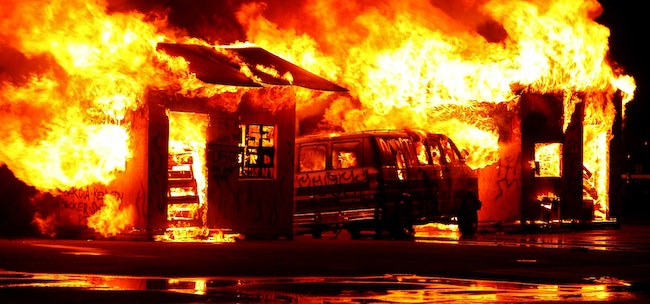
The Puranos (Tragedies)
The parsha deals with the journeys and encampments following Mount Sinai. The events are punctuated with incidents of complaint and rebellion. They are referred to as “puranos” — disasters.
After traveling from Mount Sinai, the people (the Erev Rav) murmured against Hashem. Hashem heard and became angry, fire raged and consumed part of the camp.
Then the Erev Rav made more trouble. They cried, causing Bnei Yisrael to cry as well: “Who will give us meat?” They complained, too, about the mon. This was followed by the tragic story of the quail: They gathered an immense amount of meat, but perished very suddenly.
The Break in the Chazaka
At one point, a tefila of Moshe’s is inserted in order to break up the chain of disasters (according to Rabban Shimon Ben Gamliel [Shabbos 115b – 116a]). “Kuma Hashem V’yafutzu Oivecha…” (B’midbar 10:35-36)
The Ramban believes there were three disasters. They needed to be separated because three successive instances produce a chazaka (precedent).
The Ramban shows how the disasters were interconnected, one leading to the other. First they worried about what they would eat, how they would survive. This led to sadness and complaint — typical of people in pain. But they should have been joyous — to be free to serve Hashem; instead they acted as if coerced. All of this was considered punishable in Hashem’s eyes.
Worry
These are the words of Ramban! Their worrying and concern — although typical of people in pain — were considered an offense to Hashem. The people should have been joyous… (B’midbar 11:1)
See the sefer Som Derech: Worry and complaint stem from a lack of emunah. This leads to feeling disappointment from a lack of physical pleasures. One cannot be grateful if he is missing simchas hamitzva.
See Yalkut Shimoni: The mon had whatever taste the people wanted; but it had the same drab appearance. “We only have this mon in the morning, only this mon in the evening.” Their lack of zest for mitzvos blocked their ability to be grateful.
The Pesukim were Moved
The Gemara tells how the verses beginning “Kuma Hashem V’yafutzu Oivecha…” (B’midbar 10:35-36) were moved from their rightful place to break the chazaka of puranos; in the future they will be put back where they belong. Rashi explains that the yetzer hara will be destroyed and there will no longer be puranos.
The Sefer Som Derech explains: Torah establishes the reality. Hashem saw that if there would be three consecutive disasters, there would be endless troubles in the world. Therefore, He allowed one exception; the verses beginning “Kuma Hashem V’yafutzu Oivecha…” would be moved from their rightful place — for the time being.


